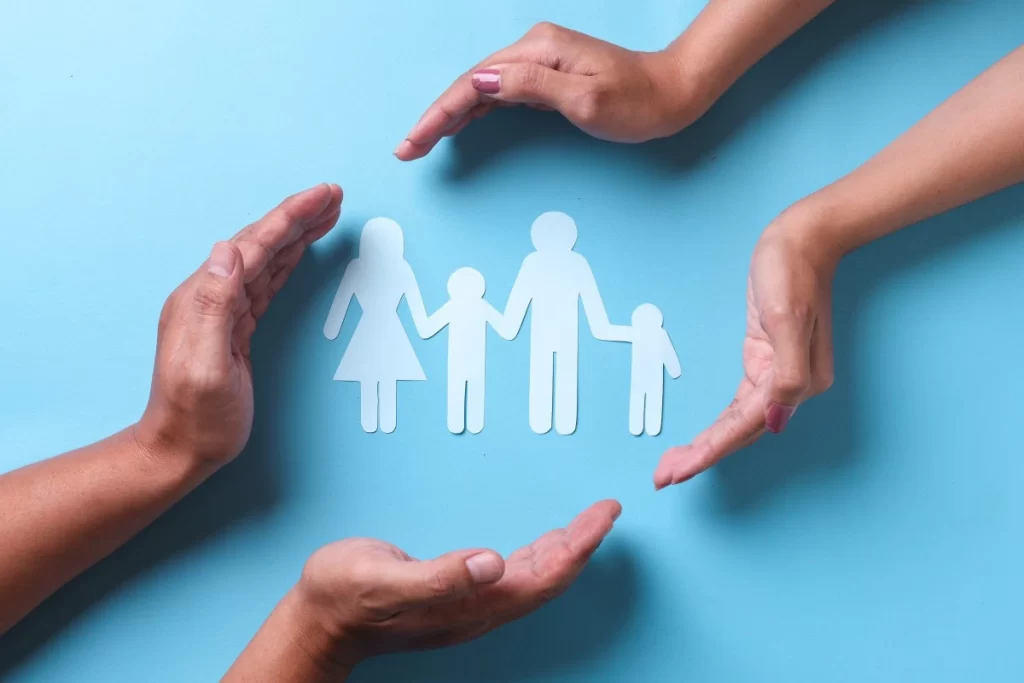What Is Bipolar?
Bipolar disorder describes significant shifts in mood, energy, thinking patterns and behaviour. Individuals with bipolar disorder might experience emotional highs or emotional lows.
When individuals experience emotional highs, they might feel extreme excitement, happiness, and energic, known as manic episodes or hypomanic episodes. Hypomanic episodes are less severe.
However, the emotional lows are characterised by feelings of extreme sadness and depression. These emotional lows are also known as depressive episodes.
It’s crucial to mention that individuals are not constantly experiencing emotional highs and lows. Individuals with bipolar disorder experience these mood swings in episodes and may appear rarely or several times a year.
Bipolar disorder is a lifelong mental health challenge; however, with proper care and support, individuals can live quality lives and manage better with their symptoms. However, it’s essential to better understand the mental health challenge to help support a loved one experiencing bipolar disorder.

Types of Bipolar Disorder
The different types of bipolar disorder are characterised by similar symptoms that can manifest in different ways. Distinguishing between the types of bipolar disorder is crucial for proper diagnosis, treatment, and support.
Bipolar I
Individuals experiencing challenges with bipolar I have experienced one or more episodes of mania – also referred to as a manic episode. Although individuals with bipolar I experience both episodes of mania and depression, an episode of depression isn’t required for a diagnosis.
Individuals who experience manic episodes that last at least a week or become severe to the point of hospitalisation are most commonly diagnosed with bipolar I disorder. However, it’s essential to mention that individuals with bipolar disorder I can experience both manic symptoms and depressive symptoms.
Bipolar II
Bipolar II is characterised by at least one depressive episode and symptoms of hypomanic episodes that have lasted at least four days.
Hypomanic episodes usually do not pose severe challenges regarding social and occupational functioning. However, they are characterised by periods of elevated and irritable mood, increased energy and decreased need for sleep.
Chronic depression is more common in bipolar II disorder.
Cyclothymic Disorder
Cyclothymic disorder is characterised by intense mood swings. However, they are less severe than bipolar I and bipolar II.
Individuals with cyclothymic disorder experience hypomanic symptoms and depressive symptoms. Additionally, mood swings can be unpredictable and interfere with all aspects of daily functioning.
Adults might experience these symptoms for at least two years before getting diagnosed, while young people might experience them for around one year.
Bipolar with Mixed Features
This type of bipolar disorder is also referred to as mixed-state bipolar disorder. Individuals get diagnosed with this type of bipolar disorder when they experience symptoms of both mania and depression simultaneously or in rapid sequence.
This type of bipolar disorder can pose many challenges to the everyday lives of the individuals experiencing it. What’s more, the treatment process for this type of bipolar disorder is far more challenging because professionals need to address both manic and depressive symptoms.
Bipolar with Seasonal Patterns
Bipolar disorder with seasonal patterns is characterised by symptoms of manic, hypomanic, or depressive episodes that coincide with specific seasons.
Individuals with this type of bipolar disorder usually experience the symptoms during winter or fall. The symptoms of this type of bipolar disorder are the same as the others, and the only difference is the seasonal pattern.
Rapid Cycling Bipolar
Individuals with rapid cycling bipolar disorder experience four or more manic, hypomanic or depressive episodes within a year.
With this type of bipolar disorder, individuals experience the symptoms rapidly, and they can immensely affect their overall quality of life.
Unspecified Bipolar Disorder
This type of bipolar disorder is also referred to as bipolar disorder not otherwise specified (NOS).
Individuals experiencing this type of bipolar disorder don’t fit into any of the types of conditions listed above. Therefore, this type of bipolar disorder can pose immense challenges for both the individuals and healthcare providers who are treating the disorder.
Signs and Symptoms of Bipolar Disorder
Intense shifts in mood, episodes of mania and depression are the most common symptoms of bipolar disorder.
However, the signs and symptoms of bipolar disorder can vary from person to person, and they do not always follow a specific pattern. Additionally, some of the symptoms might progress or decrease over time.
In any case, it’s crucial to get familiar with how some of the symptoms manifest to better understand the mental health challenge and provide proper support.
Bipolar Symptoms in Men
Some of the main symptoms of bipolar disorder, including depression or manic episodes, may vary depending on the gender you were assigned at birth.
Therefore when it comes to men, they may experience:
- Less frequent but more severe manic or hypomanic episodes
- Have challenges with more intense reactions during manic episodes
- Get diagnosed with bipolar earlier in life
- Become more susceptible to substance or alcohol misuse
- Become more susceptible to risky behaviour
Bipolar Symptoms in Women
Some research suggests that women might be more susceptible to developing bipolar disorder due to frequent hormone changes related to menstruation, pregnancy or menopause. Additionally, women with bipolar disorder are more likely to experience severe depressive episodes compared to men.
Women with bipolar disorder may experience:
- Severe depressive episodes, more frequent than manic or hypomanic
- Milder manic or hypomanic episodes
- More rapid cycling periods of mania and depression in 12 months
- Increased risk of unhealthy eating habits
- Challenges with anxiety disorders
- Challenges with sleep patterns
Bipolar Symptoms in Children
Children often don’t portray the same signs and symptoms of bipolar disorder as adults. Therefore, diagnosing bipolar can be immensely challenging.
In some cases, the signs of bipolar disorder in children may be similar to those of anxiety disorders or attention deficit hyperactivity disorder (ADHD).
It’s crucial to distinguish manic and depressive symptoms in children when discussing bipolar disorders.
During the manic phase, children may:
- Show feelings of unusual happiness or excitement
- Have continuous challenges with focus and concentration
- Portray fast and inconsistent speech and often shift subjects
- Partake in harmful or risky activities
- Appear to be easily irritated and short-tempered, with sudden outbursts of crying and agitation
- Have challenges with sleep patterns
During depressive episodes, children may:
- Suddenly and unexpectedly, start crying or feeling very sad
- Portray a lack of energy and interest in usual daily activities
- Sleep disorder, including lack or excessive sleep
- Portray changes in appetite
- Experience feelings of hopelessness
- Experience intense feelings of guilt
- Experience frequent stomach aches or headaches
Diagnosing bipolar disorder in children is challenging because mood swings are typical behaviours for children. However, if some of the symptoms progress, then it’s crucial to seek professional opinion in case there is an underlying cause, such as bipolar disorder.

What Causes Bipolar Disorder?
There are still no clear causes or triggers that cause bipolar disorder. Medical professionals believe that both genetic and socio-environmental factors may play a part. However, there isn’t one specific gene linked to bipolar disorder.
In many cases, people with bipolar disorder start portraying symptoms after a stressful or traumatic life change.
What Are Bipolar Disorders Risk Factors?
Bipolar disorders can affect individuals of all ages and backgrounds.
Women are more prone to rapid cycling and seasonal mood changes. In addition, hormonal imbalance or other mental health challenges are more common for women, such as anxiety disorders.
On the other hand, men are more prone to intense manic episodes.
Healthcare professionals suspect several factors that may influence the development of bipolar disorders, including:
- Genetic factors (having close family members with bipolar disorder)
- Misuse of alcohol or other similar substances
- Experiencing a severely stressful event or traumatic experience
Bipolar and BPD
Although bipolar disorder and borderline personality disorder (BPD) have some similar symptoms, they are two distinct mental health challenges – and should be treated as such.
The key difference between the two is that bipolar disorder is a mood disorder, while BPD is a personality disorder. People with bipolar disorder have challenges with mood swings, while individuals with borderline personality disorder have challenges with impulsive behaviour, fear of abandonment, and self-esteem.
Both conditions are highly complex, and a comprehensive evaluation is required for proper diagnosis and treatment.
Bipolar and ADHD
Bipolar disorder and ADHD are two separate challenges that have overlapping symptoms. However, there are many cases when the two challenges coexist, making the diagnosis and treatment process more challenging.
It’s crucial to address both challenges separately when they coexist.
Treatments For Bipolar Disorder
The treatment for bipolar disorder usually includes a combination of psychotherapy and medication. It’s essential to mention that the overall process can be different for each individual, depending on the severity of the symptoms.
The treatment process for people with bipolar disorder might include:
- Medication
- Cognitive Behavioural Therapy (CBT)
- Talking therapies
- Psychoeducation
- Interpersonal and Social Rhythm Therapy (IPSRT)
A qualified healthcare professional will create a treatment plan based on the symptoms of the individual.
At Nurseline Community Services, our team delivers person-centred and outcome-based support, putting the individual in need of mental health support at the centre of their support plan.
We understand the importance of providing humanised support and how much it can influence the overall treatment journey.
Cognitive Behavioural Therapy
CBT can be immensely beneficial for individuals with bipolar disorder as it addresses cognitive and behavioural patterns associated with the challenge.
What’s more, CBT can be paramount for individuals to develop an awareness of their mood swings and recognise their early signs. Each individual with bipolar disorder should receive a tailored treatment plan based on their specific needs.
What Risks and Complications Can Bipolar Disorder Cause
Bipolar disorder can have a significant impact on individuals living with the mental health challenge, and it is often associated with several risks and complications, including:
- Suicidal tendencies: Individuals with bipolar disorder might experience suicidal thoughts or behaviours during depressive episodes. It’s crucial to seek immediate professional help once there are signs of severe depression
- Substance abuse: Many individuals with bipolar disorder may turn to substance abuse as a way to cope with their symptoms. Substance abuse can worsen the course of bipolar disorder, reduce the effectiveness of treatment, and increase the risk of other complications, such as legal issues, relationship problems, and health complications
- Physical health challenges: Some of the symptoms of bipolar disorder might lead to other health concerns, such as cardiovascular challenges, diabetes, and thyroid challenges. These health concerns tend to occur because of the stressful lifestyle factors that are influenced by manic or depressive episodes
- Social withdrawal: Individuals with bipolar disorder might have challenges with maintaining relationships and friendships, leading to immense isolation and loneliness
- Cognitive challenges: Bipolar disorder can impact cognitive functioning, leading to difficulties with attention, memory, and executive functioning
Mental Health Care and Support with Nurseline Community Services
At Nurseline Community Services, the unique needs and aspirations of each individual are our top priority. We work towards delivering outcome-based solutions focused on supporting people’s independence and well-being. Our goal is to support individuals with mental health needs to lead fulfilling lives in their homes and within their communities.
With exceptional in-house positive behaviour support experts, tailored-complex care plans, and expertise in de-escalation crises – we deliver unparalleled services to individuals requiring mental health care support.
At Nurseline Community Services, complex care is delivered by trained healthcare professionals who have the expertise to provide the necessary support to individuals with complex care needs. We make sure people feel safe, secure and enable them to feel confident in managing their own lives.
If you or a loved one are in need of mental health support, feel free to contact one of our offices in Bristol, Birmingham, or Gloucester today.





